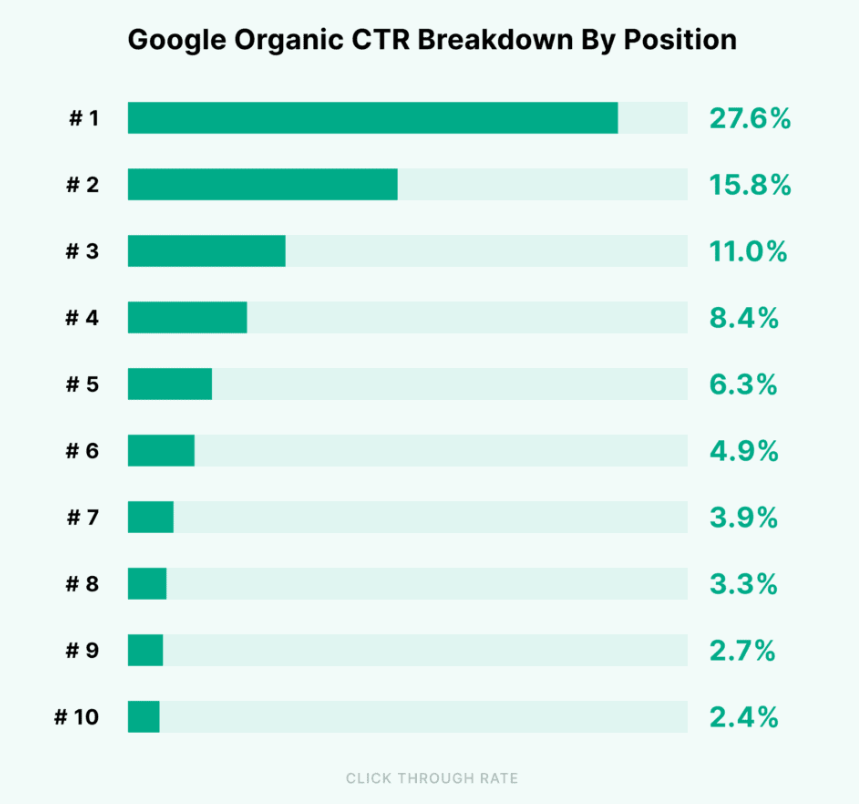What Matters Most When Analyzing SEO Traffic

By Harry Mackin
Search engine optimization is an infamously tumultuous discipline — and it’s rarely been quite as chaotic as in the past year.
Between Google’s algorithm updates, the rise of generative engines, and the rapid proliferation of AI-generated content, it can feel like the whole SEO playbook has been thrown out the window.
Despite the continued, seismic changes rocking the SEO world today, the key SEO traffic analysis metrics haven’t changed. In fact, as competition continues to increase and the SERP shrinks, performance indicators like keyword rankings, organic trends, and click-through rate are becoming more important than ever.
So keep your eye on the ball! No matter the state of SEO or your website, you can and will glean valuable insights about how to grow your qualified traffic if you pay close attention to these evergreen indicators of SEO health.
Analyzing SEO traffic: 4 key metrics to track
Keyword rankings
Keyword rankings show where your web pages appear on the corresponding keyword’s search engine result pages (SERPs). The higher your keyword ranking, the higher your page appears in the SERP. This matters because the higher your rank, the more likely users are to click through to your site from the SERP.
For example, the No. 1 result on a Google SERP receives an average of 27.6% of all clicks on that SERP, and users are an average of 10x more likely to click on this top result than they are to click on a page even as few as nine links (or ranks) below it. Meanwhile, only 0.63% of Google searchers click on a link on the second page of a SERP (ranks 11+).
In simple terms, this explains why it’s vital to focus on ranking highly for keywords that are relevant to your buyers and their journey. Tracking keyword rankings should be an ongoing activity because SERPs are not static. When you’re losing ground, competitors are likely gaining it.
Learn more about how to research keywords for your B2B SEO strategy.
Organic traffic
Organic traffic refers to visits to your website sourced from unpaid search results. This makes it one of the most direct and important metrics for determining the success of your SEO strategy.
Keeping track of organic traffic becomes even more valuable when you can cross-reference it with your keyword ranking performance. If you’re approaching your SEO strategy correctly, there should be a strong correlation between your keyword rankings and your organic traffic performance. If your strong keyword rankings aren’t driving traffic or conversions, it may be a sign you’re targeting terms that lack demand or relevance.
Another …read more
Source:: Top Rank Blog







